World Energy Council
 | |
 | |
| Formation | July 11, 1924 |
|---|---|
| Type | Charity |
| Legal status | Foundation |
| Purpose | Energy issues |
| Headquarters | London, United Kingdom |
Region served | Global |
Membership | Member Committees in 94 countries + 3 direct members |
Secretary General | Christoph Frei |
Chair | Younghoon David Kim |
Co-Chair | Jean-Marie Dauger |
Main organ | World Energy Congress |
| Affiliations |
WEC Foundation WEC Services Limited |
| Website |
www |
Formerly called |
World Power Conference World Energy Conference |
The World Energy Council is a global and inclusive forum for thought-leadership and tangible engagement with headquarters in London. Its mission is 'To promote the sustainable supply and use of energy for the greatest benefit of all people'.
The idea for the foundation of the Council came from Daniel Nicol Dunlop in the 1920s. He wanted to gather experts from all around the world to discuss current and future energy issues. He organised in 1923 first national committees, which organised the first World Power Conference (WPC) in 1924. 1700 experts from 40 countries met in London to discuss energy issues. The meeting was a success and the participants decided on July 11, 1924 to establish a permanent organisation named World Power Conference. Dunlop was elected as its first Secretary General.[1] In 1968 the name was changed to World Energy Conference and in 1992 it became the World Energy Council.
The World Energy Council is the principal impartial network of leaders and practitioners promoting an affordable, stable and environmentally sensitive energy system for the greatest benefit of all. Formed in 1923, the Council is the UN-accredited [2] global energy body, representing the entire energy spectrum, with more than 3000 member organisations located in over 90 countries and drawn from governments, private and state corporations, academia, NGOs and energy-related stakeholders. The World Energy Council informs global, regional and national energy strategies by hosting high-level events, publishing authoritative studies, and working through its extensive member network to facilitate the world’s energy policy dialogue. Today, the Council has Member Committees established in over 90 countries, which represent over 3000 member organizations including governments, industry and expert institutions. The World Energy Council covers all energy resources and technologies of energy supply and demand.[3]
The World Energy Council hosts the World Energy Congress, which is the world’s largest and most influential energy event covering all aspects of the energy agenda. Staged every three years, the Congress provides a platform for energy leaders and experts in all aspects of the sector to address the challenges and opportunities facing suppliers and consumers of energy.[4]
The World Energy Council's publications include an annual country-by-country Energy and Climate Policy Assessment, the Survey of Energy Resources.
Member Committees
As of June 2017 the World Energy Council has 94 member committees plus 4 direct members Australia, Dominican Republic, Malaysia, Singapore.
 Algeria
Algeria Argentina
Argentina Armenia
Armenia Austria
Austria Bahrain
Bahrain.svg.png) Belgium
Belgium Bolivia
Bolivia Botswana
Botswana Brazil
Brazil Bulgaria
Bulgaria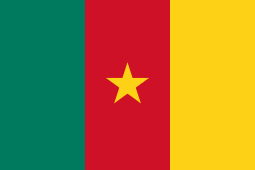 Cameroon
Cameroon Canada
Canada Chad
Chad Chile
Chile China
China Colombia
Colombia Congo
Congo Côte d’Ivoire
Côte d’Ivoire Croatia
Croatia Cyprus
Cyprus Czech Republic
Czech Republic Denmark
Denmark Ecuador
Ecuador Egypt
Egypt Estonia
Estonia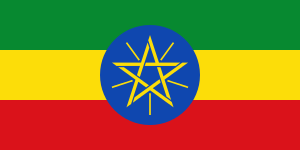 Ethiopia
Ethiopia Finland
Finland France
France Germany
Germany Ghana
Ghana Greece
Greece Hong Kong, China
Hong Kong, China Hungary
Hungary Iceland
Iceland India
India Iran
Iran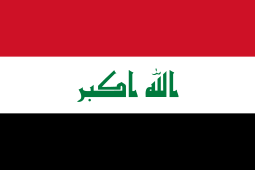 Iraq
Iraq Ireland
Ireland Israel
Israel Italy
Italy Japan
Japan Jordan
Jordan Kazakhstan
Kazakhstan Kenya
Kenya.svg.png) Korea
Korea Latvia
Latvia Lebanon
Lebanon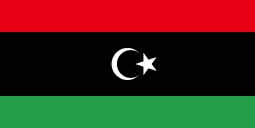 Libya
Libya Lithuania
Lithuania Luxembourg
Luxembourg Malaysia
Malaysia Mexico
Mexico Monaco
Monaco Mongolia
Mongolia Morocco
Morocco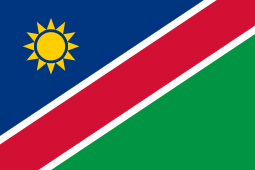 Namibia
Namibia Nepal
Nepal Netherlands
Netherlands New Zealand
New Zealand Niger
Niger Nigeria
Nigeria Pakistan
Pakistan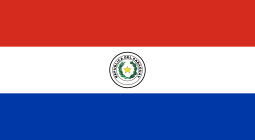 Paraguay
Paraguay Peru
Peru Poland
Poland Portugal
Portugal Romania
Romania Russian Federation
Russian Federation Saudi Arabia
Saudi Arabia Senegal
Senegal Serbia
Serbia Singapore
Singapore Slovakia
Slovakia Slovenia
Slovenia South Africa
South Africa Spain
Spain Sri Lanka
Sri Lanka Swaziland
Swaziland Sweden
Sweden Switzerland
Switzerland Syria
Syria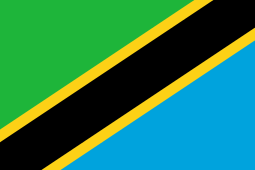 Tanzania
Tanzania Thailand
Thailand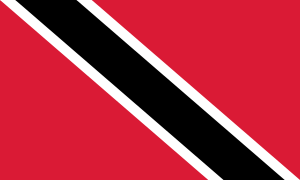 Trinidad & Tobago
Trinidad & Tobago Tunisia
Tunisia Turkey
Turkey Ukraine
Ukraine United Arab Emirates
United Arab Emirates United Kingdom
United Kingdom United States
United States Uruguay
Uruguay Vietnam
Vietnam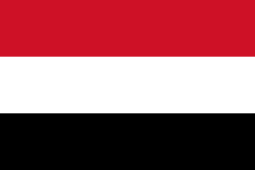 Yemen
Yemen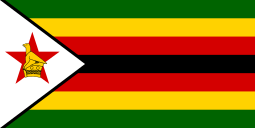 Zimbabwe
Zimbabwe
World Energy Congresses
- London, 1924
- Berlin, 1930
- Washington, 1936
- London, 1950
- Vienna, 1956
- Melbourne, 1962
- Moscow, 1968
- Bukarest, 1971
- Detroit, 1974
- Istanbul, 1977
- Munich, 1980
- New Delhi, 1983
- Cannes, 1986
- Montreal, 1989
- Madrid, 1992
- Tokyo, 1995
- Houston, 1998
- Buenos Aires, 2001
- Sydney, 2004
- Rome, 2007
- Montreal, 2010
- Daegu, 2013
- Istanbul, 2016
- Abu Dhabi, 2019
Chairs
- 1995 – 1998: John Baker
- 1998 – 2001: Jim Adam
- 2001 – 2004: Antonio del Rosario
- 2004 – 2007: André Caillé
- 2007 – 2013: Pierre Gadonneix
- 2013 - 2016: Marie-José Nadeau
- 2016 - today: Younghoon David Kim
Secretaries General
- 1924 – 1928: Daniel Nicol Dunlop
- 1928 – 1966: Charles Gray
- 1966 – 1986: Eric Ruttley
- 1986 – 1998: Ian Lindsay
- 1998 – 2008: Gerald Doucet
- 2008 - 2009: Kieran O'Brian (acting)
- 2009 - today: Christoph Frei
Officers
- YOUNGHOON DAVID KIM, Chair
- JEAN-MARIE DAUGER, Co-chair & Chair – Studies Committee
- IBRAHIM AL-MUHANNA, Vice Chair – Special Responsibility Gulf States/Middle East
- MATAR AL NEYADI, Vice Chair – 2019 Congress, Abu Dhabi
- NUER BAIKELI, Vice Chair – Asia
- KLAUS-DIETER BARBKNECHT, Vice Chair – Finance
- LEONHARD BIRNBAUM, Vice Chair – Europe
- OLEG BUDARGIN, Vice Chair – Responsibility for Regional Development
- JOSÉ DA COSTA CARVALHO NETO, Chair – Programme Committee
- CLAUDIA CRONENBOLD, Vice Chair – Latin America/Caribbean
- ROBERT HANF, Vice Chair – North America
- ELHAM IBRAHIM, Vice Chair – Africa
- SHIGERU MURAKI, Vice Chair – Asia Pacific/South Asia
- JOSÉ ANTONIO VARGAS LLERAS, Chair – Communications & Strategy Committee
Reports
For over 80 years, the World Energy Council has been producing highly regarded studies and publications which are seen as essential tools by governments, industry, investors, IGOs, NGOs and academia looking for impartial information to inform their decision-making processes. Regular flagship studies are:
World Energy Scenarios[5], an in-depth explorative energy scenarios. This work seeks to identify what may happen in our future energy systems based on quantitative computer modelling and the knowledge of our global network of energy experts.
World Energy Resources [6], a survey of global resources and technologies. It identifies what energy resources we have and what technologies are being used to exploit these resources.
World Energy Trilemma report [7], an independent assessment of national energy and climate policies. This work seeks to identify how we can make better policies to improve our energy systems.
World Energy Issues Monitor[8], an annual monitor identifying what issues are affecting the global energy leaders’ community. World Energy Scenarios, an in-depth explorative energy scenarios. This work seeks to identify what may happen in our future energy systems based on quantitative computer modelling and the knowledge of our global network of energy experts.
For a complete list of reports see [9] https://www.worldenergy.org/publications/
See also
- Global warming
- Greenhouse gas
- World Energy Forum
References
- ↑ Wright, Rebecca; Shin, Hiroki; Trentmann, Frank (2013). From World Power Conference to World Energy Council: 90 Years of Energy Cooperation, 1923 - 2013 (PDF). World Energy Council. p. 13. ISBN 978 0 946121 31 1. Retrieved March 2014. Check date values in:
|access-date=(help) - ↑ http://unterm.un.org/DGAACS/unterm.nsf/8fa942046ff7601c85256983007ca4d8/acf19b49281081c7852569fa0000ece8?OpenDocument
- ↑ http://www.worldenergy.org/about-wec/
- ↑ http://www.worldenergy.org/about-wec/what-wec-does/world-energy-congress/
- ↑ https://www.worldenergy.org/work-programme/strategic-insight/global-energy-scenarios/
- ↑ https://www.worldenergy.org/work-programme/strategic-insight/survey-of-energy-resources-and-technologies/
- ↑ https://www.worldenergy.org/work-programme/strategic-insight/assessment-of-energy-climate-change-policy/
- ↑ https://www.worldenergy.org/publications/world-energy-strategic-insights/world-energy-issues-monitor/
- ↑ http://www.worldenergy.org/publications/
External links
| Wikimedia Commons has media related to Weltkraftkonferenz. |
- World Energy Congress Istanbul 2016
- World Energy Council website
- World Energy Congress Montreal 2010
- World Energy Council - Indicators for Energy Efficiency, Odyssee Program.